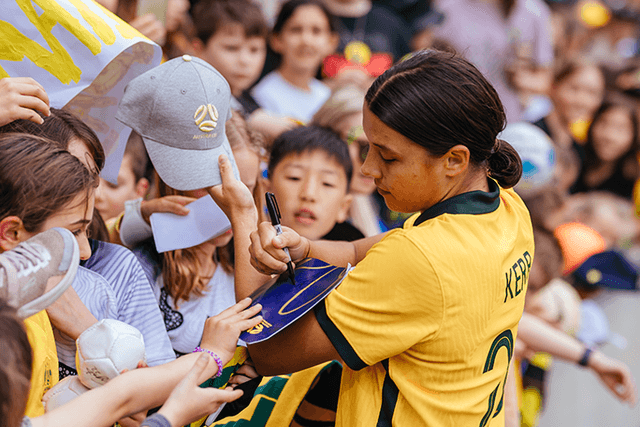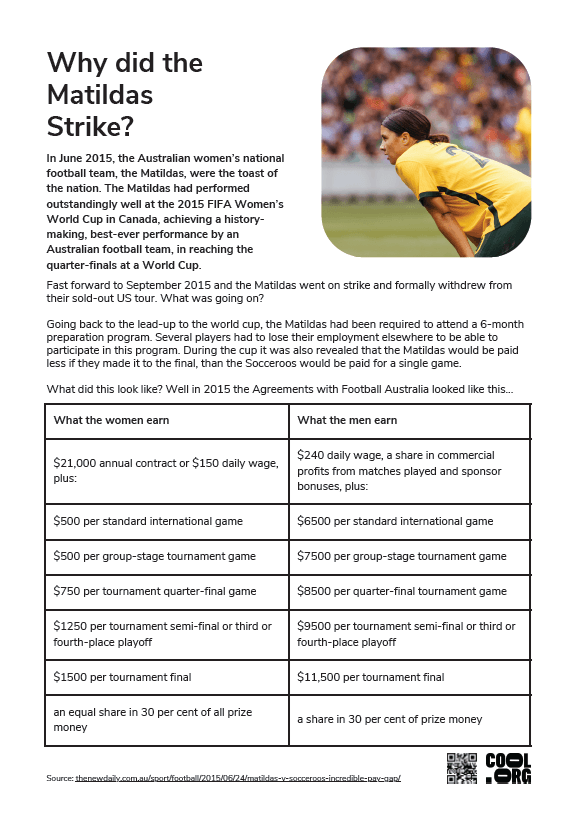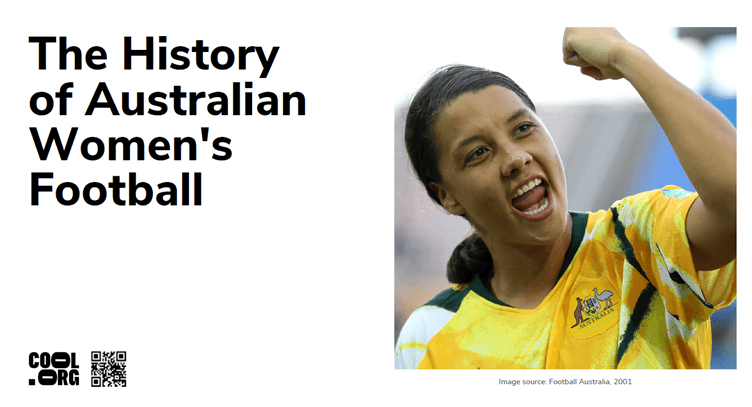
Exploring Gender Stereotypes in Sport
Lesson3 of 3 in this unit
PrimaryYear 5 - 6Health and Physical EducationHealthPhysical EducationSocialPhysical HealthSocial Action
Summary
Lesson Guides and Printables
Student Worksheet

Lesson Plan

Respect, Empathy and Gender - Why did they strike

Respect, Empathy and Gender - Football History
